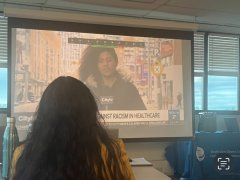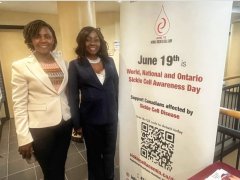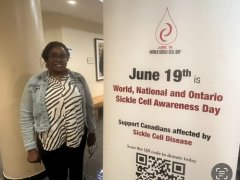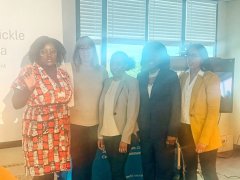Published on Sunday 1 June 2025
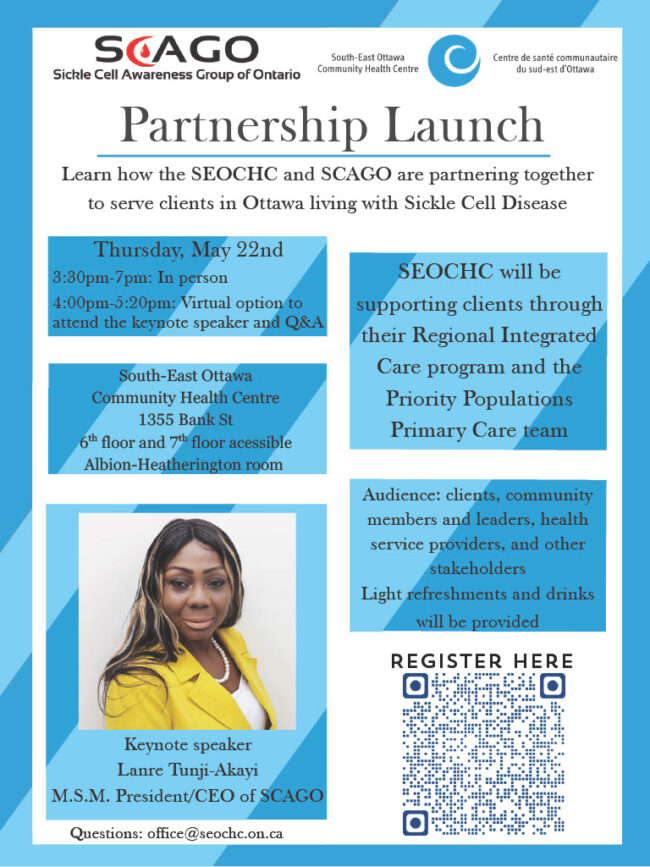
There’s hope: Ottawa community leaders tackle sickle cell health inequities
by Joy Keke, Editorial Associate
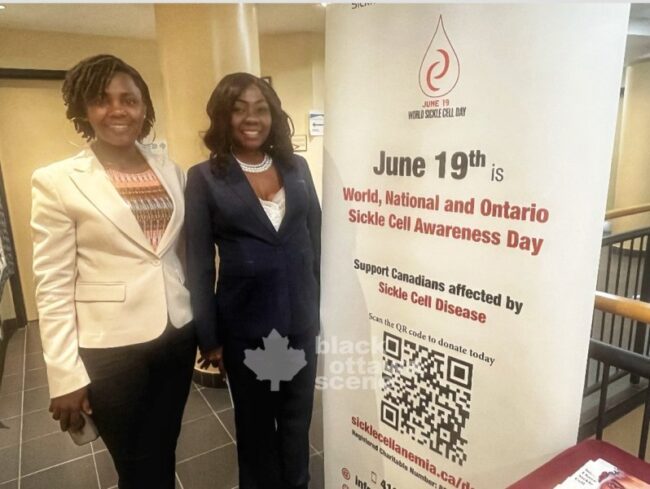
The number of people living with sickle cell disease has surged by 41 per cent worldwide — from 5.46 million in 2000 to 7.74 million in 2021, according to a publication by Science Direct.
Sickle cell disease is a hereditary blood disorder that affects red blood cells, causing them to become rigid and shaped like a crescent or sickle.
To address this pressing issue, the South-East Ottawa Community Health Centre and the Sickle Cell Awareness Group of Ontario launched a new partnership on May 22, aiming to build momentum for change.
The event featured keynote speaker Lanre Tunji-Ajayi, President and CEO of the Sickle Cell Awareness Group of Ontario.
For Lanre Tunji-Ajayi, advocacy isn’t a choice — it’s a calling rooted in grief, resilience, and an unrelenting drive to protect lives.
Nearly two decades after losing her younger brother to preventable complications of sickle cell disease, Tunji-Ajayi continues to transform personal pain into public action.
Though Tunji-Ajayi has spent over 30 years in Canada, her Nigerian heritage profoundly shapes her advocacy.
This is crucial given the persistent inequities, such as the 2013 study revealing Black patients with sickle cell disease wait 25 per cent longer for emergency care than others.
While the road to policy change and health equity has been long, with Tunji-Ajayi recalling decades of knocking on ministry doors before tangible progress was made, there’s newfound hope.
The National Framework on Sickle Cell Disease Act (Bill S-280) was passed in 2023, which mandates the development of a national framework to support individuals with sickle cell disease, their families, and caregivers.
“We’re in exciting times,” Tunji-Ajayi said.
“Twenty years ago, this was unthinkable. Even ten years ago, we didn’t have what we have now. There’s hope, and we must hold onto that as we push for continued change,” she added.
Among the community leaders present at the event was Jamila Mhald, the Equity Advisor at Southeast Ottawa Community Health Centre.
“For me, it’s always about the community engagement piece,” Mhald shared.
“It’s about reaching folks we haven’t connected with yet and creating a space where others can meet and build relationships too.”
Born and raised on Treaty 1 territory in Winnipeg, Mhald’s career path took her from nursing in a small clinic to public health work in Winnipeg’s North End.
Now based in Ottawa, her focus has broadened to health equity and advocacy.
“I learned so much just from today’s session alone,” she said. “Their resources and outreach are invaluable, and with our new partnerships in Ottawa, this is just the beginning of building awareness in our city.”
At the heart of Southeast Ottawa’s new health equity initiative is Gurjit Kaur Toor, a registered nurse and Director of Health Services at Southeast Ottawa Community Health Centre.
With over a decade of experience spanning clinical practice, leadership, public health, and epidemiology, Toor has long recognized the gaps in care faced by equity-deserving populations, particularly within Ottawa’s racialized communities.
For Toor, the event wasn’t just about information-sharing; it was about shifting how care is delivered.
“It’s one thing to have these conversations,” she said, “but it’s another to say, we’re going to take this seriously and work to improve the experience of care for people in our community.”

